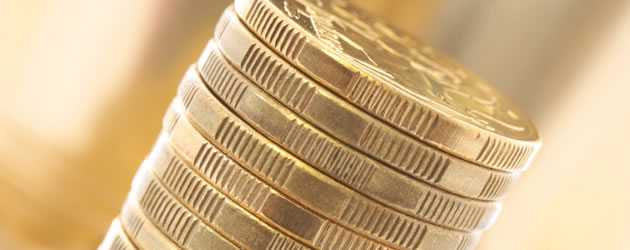‘Aussie’ (AUD) Rally Continues as ‘Brexit’ Fears Seep Over to Eurozone
The EUR/AUD pair has fallen by a considerable -1.0% in total today as investors see the Australian Dollar as the more appealing of the two currencies amid ongoing Eurozone economic concerns.
On top of ECB criticisms, the International Monetary Fund (IMF) released statements today implying that a ‘Brexit’ (the UK leaving the EU) would not just affect Britain negatively, but Europe as a whole.
The BBC reports the IMF as saying that such a move could cause regional and global damage, and the possibility of a ‘Brexit’ is starting to weaken not just Pound Sterling (GBP) but also the Euro, allowing the Australian Dollar to push EUR/AUD down even further.
Earlier…
- European Central Bank (ECB) Faces Criticism – German officials frustrated with easing
- German CPI On Track – Continues recent trend of healthy German data
- Risk-Sentiment on the Rise – Oil and Australian data helps drive Euro down
- EUR/AUD Rally Over? – Further ECB statements may continue to weaken Euro
After last week’s bullish run, the EUR/AUD exchange rate seems to be cooling, with the European Central Bank’s (ECB) latest minutes release causing concern among investors and criticism of ECB President Mario Draghi from German officials.
EUR/AUD is currently down almost -0.8%, having already dropped over -100 pips from this morning’s levels of 1.5032. The pair currently trades in the region of 1.4913 close to a weekly low.
Euro (EUR) Pressured as Tensions Rise Between ECB and Germany
The Euro felt immediate pressure as markets opened this week. While the ECB’s minutes initially left investors with mixed feelings about the shared currency, ECB criticism from German officials has influenced investors to become bearish on Eurozone health.
During March’s ECB announcements and statements, ECB President Mario Draghi made a passing comment on ‘helicopter money’, that is, the concept of directly giving money directly to citizens in order to stimulate purchasing. It is, as of yet, an experimental concept that has never been exercised by a major economy.
Draghi, now infamously, called the concept ‘very interesting’, which stoked protests from Germany. As the Eurozone’s biggest economy, officials and citizens from Germany consider this kind of extreme easing to be harmful to their nation’s economic health.
At the end of last week, German Finance Minister Wolfgang Schaeuble blamed Draghi’s words for the rise of a right-wing, anti-immigration party known as Alternative for Germany (AfD). The party has quickly grown in popularity, becoming the most popular right-wing party in the nation since World War 2.
German data also continues to print optimistically, unlike most Eurozone data, with March’s final CPI print coming in as forecast, 0.8% month-on-month and yearly inflation of 0.3%.
‘Aussie’ (AUD) Boosted by Rising Risk-Sentiment, Positive Australian Data
Soft Chinese data has been unable to hold the Australian Dollar down as it pushes back against the Euro this week. The key Chinese CPI report printed at 2.3%, below forecasts of 2.4%, in a blow to commodity sentiment.
However, optimistic commodity data and other factors such as a dovish Federal Reserve have allowed risk-sentiment to keep improving regardless. Still in quite a volatile state, risk-on movements this week have been largely inspired by continued optimism towards oil prices.
The key global commodity may begin to see long-term recovery if OPEC members can agree to ‘freeze’ production and improve demand.
Fresh Australian data also helped to boost ‘Aussie’ sentiment. In particular, the NAB business confidence figure was revealed to have doubled from 3 to 6, showing that businesses in Australia were optimistic about the future.
Other Australian data to print well included credit card data, with balances and purchases both up in February from their January scores.
Euro to Australian Dollar (EUR/AUD) Exchange Rate Forecast: ‘Aussie’ Rally Likely to Continue
As the European Central Bank continues its attempts to weaken the Euro in order to stimulate the Eurozone economy, it is unlikely to give the common currency reason to strengthen any time soon.
Some ECB members are due to speak this week, and it is currently unknown whether they will address the German concerns raised. Continued tension between the ECB and the Eurozone’s biggest nation is likely to weigh on the single currency.
Eurozone industrial production data for February is due for release tomorrow and is currently forecast to have softened in both monthly and yearly reports. If the figure prints even worse than expected, the Euro will likely struggle.
Wednesday also sees the release of Australia’s Westpac consumer confidence report for April. With the previous figure at a negative -2.2%, there’s a lot of potential for improved ‘Aussie’ sentiment if it prints optimistically.
Investors will also be anticipating Thursday’s Australian employment data. Unemployment for the nation is currently forecast to worsen to 5.9%, a figure that could dampen AUD sentiment.
The Euro to Australian Dollar (EUR/AUD) exchange rate currently trades at around 1.4913, while the Australian Dollar to Euro (AUD/EUR) exchange rate trends in the region of 0.6703.



